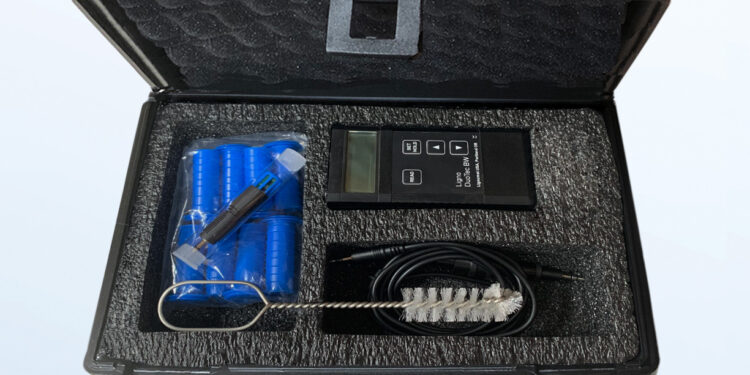In construction, ensuring the quality and durability of materials is vital to a project’s success. One critical factor often overlooked is the moisture content in concrete. Excess moisture can lead to structural problems, project delays, and additional costs, making proper monitoring essential. A concrete moisture meter is an invaluable tool that helps assess moisture levels accurately, ensuring the integrity and longevity of your construction work.
The Importance of Moisture Management in Concrete
Concrete is a porous material that absorbs and retains water during its preparation and curing stages. While some moisture is necessary for proper curing, excessive levels can lead to significant issues. High moisture content can result in cracking, delamination, or adhesive failures when installing flooring. Additionally, it can create an environment conducive to mold growth, particularly in indoor settings. Ensuring moisture levels remain within acceptable limits is essential for the concrete to perform as expected.
How a Concrete Moisture Meter Works
A concrete moisture meter is designed to measure the water content within a concrete slab, providing accurate readings that allow for informed decisions during construction. These devices use methods such as electrical resistance or electromagnetic signals to assess moisture levels without damaging the material. Modern moisture meters come with digital displays and often provide precise measurements in a matter of seconds. Advanced models include features such as data logging and connectivity options, making them ideal for ongoing monitoring on large construction sites.
Key Benefits of Using a Concrete Moisture Meter
One of the primary advantages of using a moisture meter is its ability to prevent structural issues. By identifying moisture imbalances early, you can avoid problems such as cracking or uneven drying, which compromise the strength and durability of the structure. Additionally, moisture meters help streamline the construction process. Instead of relying on guesswork, you can determine whether the concrete is ready for the next phase, such as flooring installation. This ensures smooth progress and eliminates costly delays caused by premature actions.
Applications in Construction
A moisture meter proves useful at various stages of a construction project. When pouring concrete slabs, it ensures the mix has the appropriate water content. During the curing process, the meter monitors drying rates, ensuring the material achieves optimal strength. Before installing flooring or coatings, the device verifies the subfloor is adequately dry to avoid adhesive failures or surface damage. It’s also beneficial during renovations, where it helps detect hidden moisture issues in existing structures.
Choosing the Right Concrete Moisture Meter
When selecting a moisture meter, accuracy and ease of use should be top priorities. Features such as digital readouts, calibration options, and compatibility with your project requirements make certain models more effective for professional use. For larger or more complex projects, devices with data storage and connectivity options can streamline monitoring and reporting.
Conclusion
A concrete moisture meter is essential for maintaining quality and preventing issues in construction projects. Providing accurate and reliable readings helps avoid structural problems, ensures proper curing, and supports efficient project timelines. Whether working on new construction or renovations, investing in a quality moisture meter ensures your concrete work is strong, durable, and built to last.















